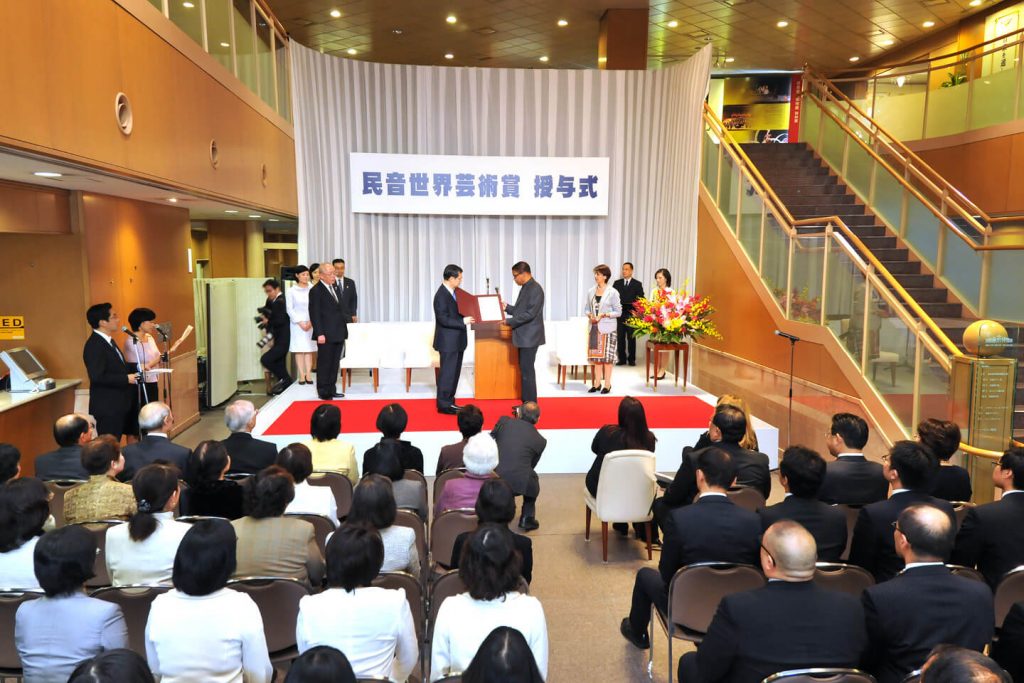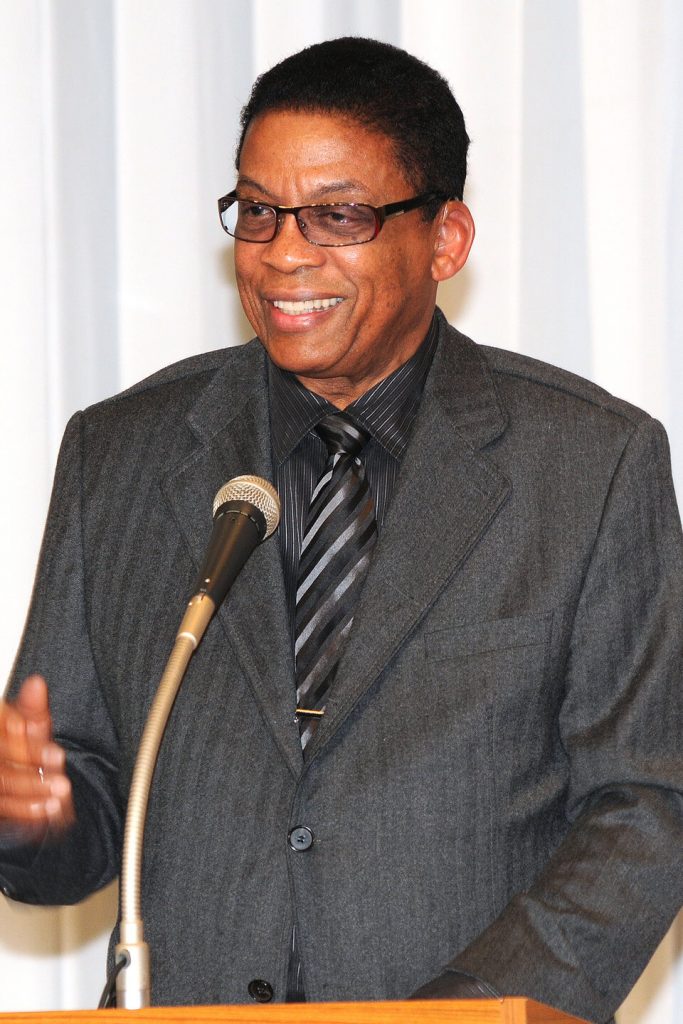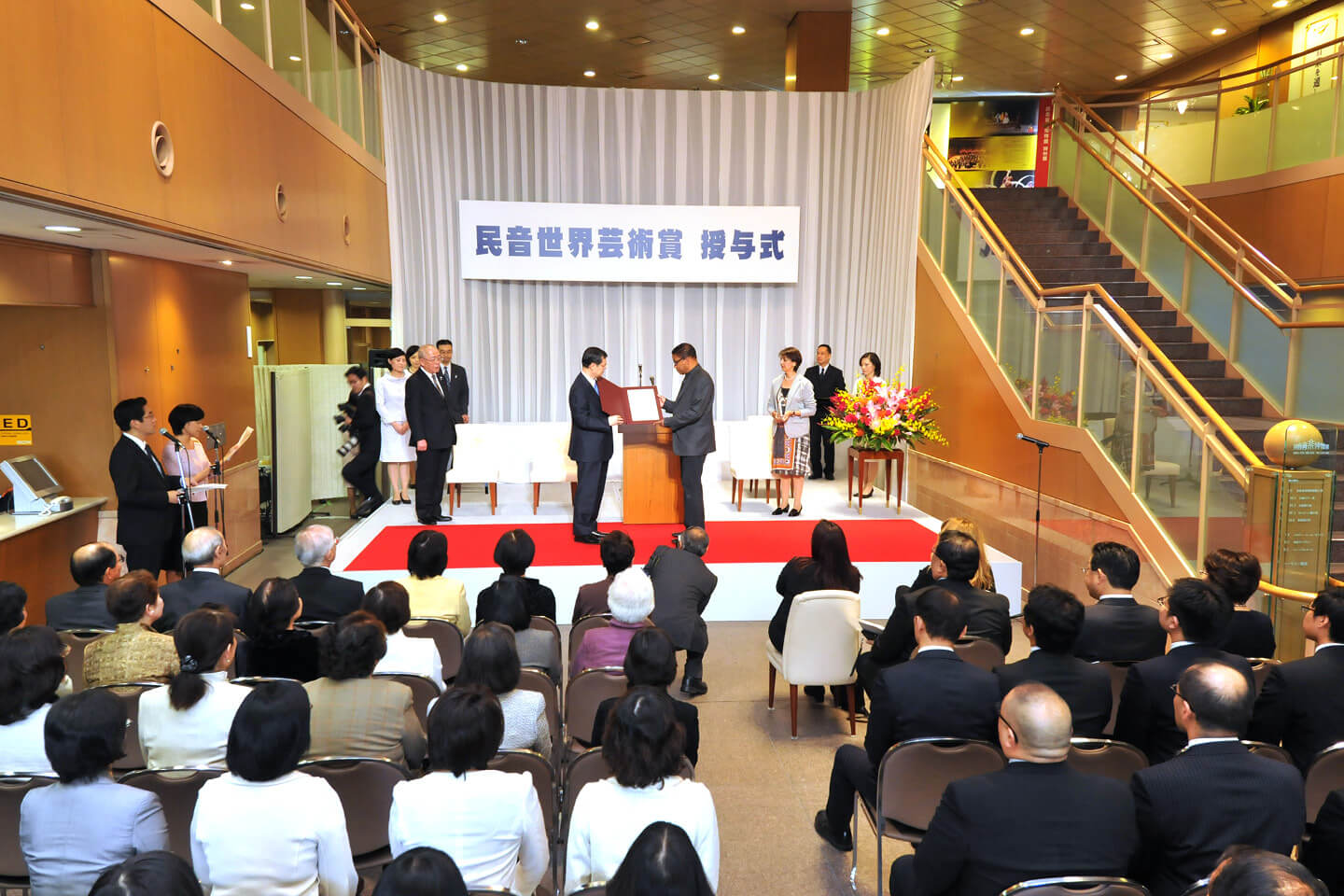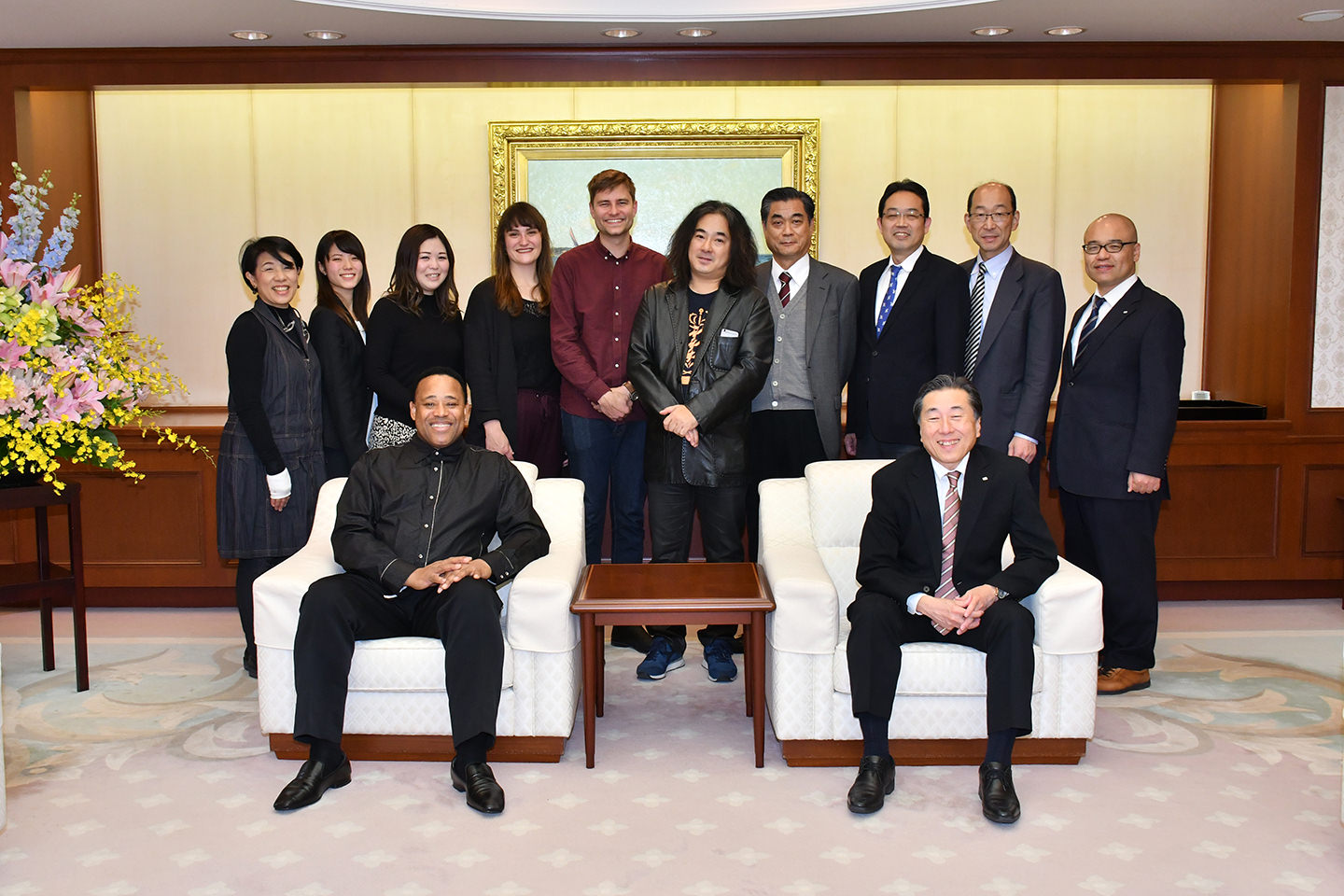

On October 30, the day after his arrival in Japan for his concert tour, jazz icon Herbie Hancock visited the Min-On Culture Center in Tokyo, and in commemoration of the 50th anniversary of Min-On’s founding, he received the Min-On International Award for Arts at a presentation ceremony held in the grand entrance foyer of the Min-On Culture Center. In attendance were Mr. Hiromasa Ikeda on behalf of the Founder, Min- On President Hiroyasu Kobayashi, the members of the boards of directors and trustees, as well as staff and distinguished guests of the Min-On Concert Association. The Award was established in recognition of outstanding artistic achievements and longstanding dedication to the promotion of culture for peace, together with profound spirituality and unparalleled abilities in the field of music and the arts. Herbie Hancock became the second recipient of the Award since John Neumeier of the Hamburg Ballet, who received it in 1997.
Herbie Hancock’s Acceptance Speech

“I would like to thank President Kobayashi and the staff of the Min-On Concert Association, Mr. Hiromasa Ikeda, and of course the Founder Dr. Daisaku Ikeda, for bestowing upon me this wonderful and prestigious award. I would actually like to receive this award on behalf of so many mentors I have had in music and also in life, those who have brought me up to carry me upon their shoulders, and who have played such an important part in making me the person I am today.
“I must confess that I am a work in progress. I continue to learn and hopefully to grow. But for the rest of my life, I have the deep conviction that I will continue to be not only a student of music but also of life.
“In the past, I saw the lessons I learned from my musical mentors as applying only to music. But through what I have learned from the Founder, as an SGI member, I have come to realize how important many of those lessons were for life.
“For example, we all probably know that the three basic components of music are melody, harmony and rhythm. But those same components are also very important components for life. We might think of melody as being the life that we live and the decisions we make from day-to-day, from moment-to- moment; harmony as being how we relate to other human beings and how we relate to the environment we live in; and rhythm as being the sufferings and joys of life – the ups and downs of life.
“With that in mind, we might consider this idea that human beings are really part of the orchestra of life. An orchestra that we look forward to harmonizing with, having unity and rhythm, and eventually to achieve the kind of peace we want to establish in this world that we live in, for our own happiness and for the happiness of others.
“I can see here a cello, a violin, a flute, and a drum over there. You’re all part of this great orchestra. Mr. Hiromasa Ikeda was just talking about the power of music; I would hope that our young people will not only be able to enjoy music just for the pleasure of enjoyment— we see young people walking around with earbuds in their ears all the time . . . With this Min-On International Award for Art, I commit my life to encouraging young people to use the power of music—not only for enjoying the melody, harmony and rhythm of the music itself, but also to have a larger vision of using music to help harmonize the orchestra of life.
“Thank you very much.”





.jpg)

